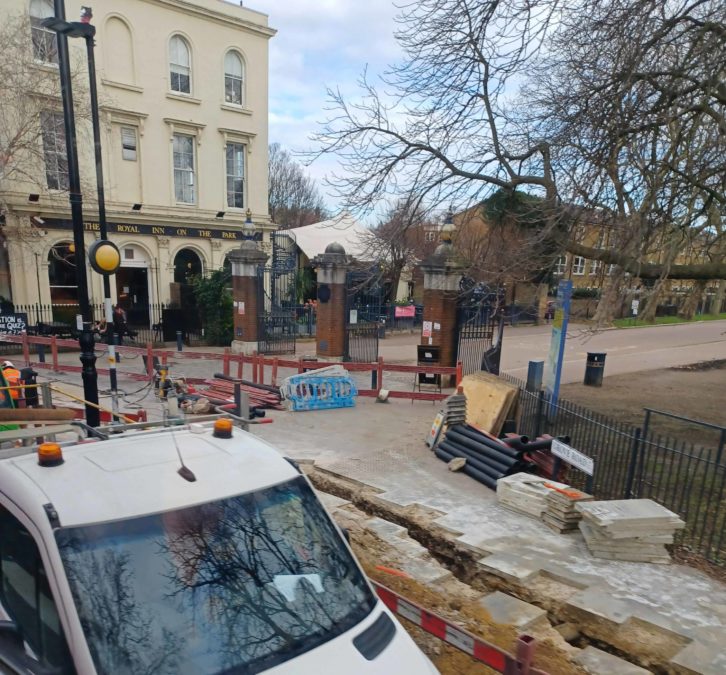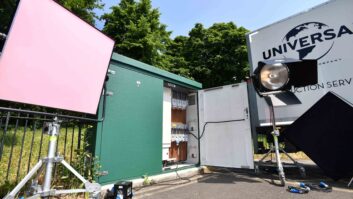Film London has launched the Grid Project, an initiative that aims to supply renewable energy to productions in the capital that will reduce CO₂ emissions and noise pollution.
Construction on the project, which is supported by the Mayor of London and NBC Universal, is underway in Victoria Park, Tower Hamlets.
The project pilots the supply of green energy via the mains network, with the installation of an electrical feeder pillar at a key unit base in London.

When filming on location, productions currently plug into diesel or petrol generators at unit bases for energy supply, said Film London. Detailed analysis completed by ARUP for Victoria Park estimated that during 2018, production generators consumed 64,082 litres of diesel and 1,656 litres of petrol. The estimated CO₂ emitted by the generators was 169,556kg.
Productions can plug into the new electrical feeder pillars reducing CO₂ emissions by 100 per cent and PM (Particulate Matter) and NO₂ (Nitrogen Dioxide) emissions to zero. The cabinets will also be available for use during events, reducing diesel generator usage from other industries.
Adrian Wootton OBE, chief executive of Film London and the British Film Commission, said: “With demand for content higher than ever and the sheer popularity of London as a filming destination, our industry faces a growing imperative to be more sustainable. Innovations such as the Grid Project will reduce emissions and noise pollution whilst continuing to make world-class content on location.
“Film London is extremely proud to be leading this project, and I hope its development inspires other councils and unit base sites across London and beyond to follow suit. It is vital that across the board, we continue to highlight environmental challenges, exchange learning, and work together toward supporting infrastructure changes and solutions. I would like to thank all partners involved, whose pro-active support has been invaluable.”






